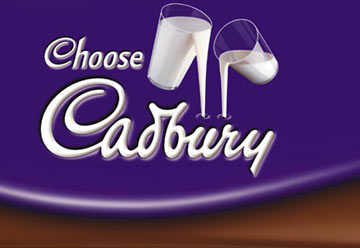 The drama associated with Kraft’s hostile takeover bid for Cadbury has been widely reported in recent weeks. With Kraft’s decision earlier this week to make a formal bid that did not sweeten the terms of the original offer, it appears that we are in for several months of high stakes wrangling before Cadbury shareholders make a final decision.
The drama associated with Kraft’s hostile takeover bid for Cadbury has been widely reported in recent weeks. With Kraft’s decision earlier this week to make a formal bid that did not sweeten the terms of the original offer, it appears that we are in for several months of high stakes wrangling before Cadbury shareholders make a final decision.
Several Kraft investors, including Warren Buffett commenting in this video, seem to view Kraft’s existing offer as a full one and may not support richer terms. Meanwhile, many Cadbury holders are now arbitrageurs hoping for a quick payday. While the final outcome for this deal cannot be predicted, interesting lessons can be drawn regarding the nature of brands and economic moats.
Rather Eat Scorpions Than Hershey Bars?
The Economist recently launched a new column named after Joseph Schumpeter which has already become a “must read” for those interested in competition. Last week’s Schumpeter column on the Kraft/Cadbury deal contained a startling claim:
Chocolate companies as a breed also have a peculiarly intimate relationship with their customers, partly because chocolate is involved in so many childhood, romantic and festive rituals, and partly because people acquire their tastes in chocolate at their mothers’ knees. Most Britons would rather eat scorpions than Hershey bars.
Now, surely this must be an exaggeration! Well, it may not be so far from the truth based on a recent Wall Street Journal article about the lengths to which some customers are willing to go in order to secure supplies of authentic “British” Cadbury which is formulated differently from “American” Cadbury products. (Ironically, Cadbury products are distributed by Hershey in the United States):
When Gayle Green has a craving for chocolate, she piles her two children into her car and drives 45 minutes to the British Pantry store in Aldie, Va., where she stocks up on Cadbury chocolates imported from the U.K. “I know — it’s sick, right?” says the 40-year-old social media director for a wedding Web site. Ms. Greene could buy American-made Cadbury bars at a grocery store just a few minutes from her house in Woodbridge, Va. But since getting her first taste of British chocolate on a high-school trip to the U.K., she wants nothing to do with the stuff made in the U.S. “Oh, it’s so yuck,” she says. “You might as well eat a Hershey bar.”
…
At Tea & Sympathy, a specialty food shop in New York’s Greenwich Village, carrying nothing but imported Cadbury bars is a point of pride. “If you were to hold a gun to my head, and say, ‘Eat this Hershey bar!’ I’d say: ‘Shoot me,’ ” says co-owner Sean Kavanagh-Dowsett.
Brand Awareness
The strong reactions people seem to have regarding chocolate bars stem from lifelong habits and memories. Those of us who grew up eating Hershey’s bars obviously would not trade one for a scorpion, or in many cases, even for a Cadbury. The opposite is true for many consumers who grew up in the United Kingdom or its former colonies where Cadbury is dominant.
This illustrates how powerful and valuable brands can be. Many parts of the world are currently unfamiliar with chocolate and are “blank slates” in terms of forming brand awareness. As The Economist article points out, the first mover in those countries is likely to build brand loyalty that will be difficult or impossible to displace. Furthermore, since chocolate is a low priced luxury item, the millions of upwardly mobile consumers in developing countries will find it increasingly easy to afford the product.
Kraft may be paying a full price for Cadbury and will probably have to boost the offer price even further in order to finalize a deal. However, Kraft management obviously believes that Cadbury’s existing distribution system in places like India will create a powerful economic moat and end up justifying the valuation. Given that over 500 million Indian consumers have never tasted chocolate, Kraft’s management may end up being correct. With the Indian distribution system already in place, Cadbury will have enormous advantages in building brand awareness and loyalty as Indian consumers become more affluent.
Disclosures: No positions.
